
Victor Andrew de Bier Everleigh McLaglen was a British-American actor and boxer. His film career spanned from the early 1920s through the 1950s, initially as a leading man, though he was better known for his character acting. He was a well-known member of John Ford’s Stock Company, appearing in 12 of the director’s films, seven of which co-starred John Wayne.

Jon Hall was an American film actor known for playing a variety of adventurous roles, as in 1937's The Hurricane, and later when contracted to Universal Pictures, including Invisible Agent and The Invisible Man's Revenge and six films he made with Maria Montez. He was also known to 1950s fans as the creator and star of the Ramar of the Jungle television series which ran from 1952 to 1954. Hall directed and starred in two 1960s sci-fi films in his later years, The Beach Girls and the Monster (1965) and The Navy vs. the Night Monsters (1966).
Edward Small was an American film producer from the late 1920s through 1970, who was enormously prolific over a 50-year career. He is best known for the movies The Count of Monte Cristo (1934), The Man in the Iron Mask (1939), The Corsican Brothers (1941), Brewster's Millions (1945), Raw Deal (1948), Black Magic (1949), Witness for the Prosecution (1957) and Solomon and Sheba (1959).

Arthur Lubin was an American film director and producer who directed several Abbott & Costello films, Phantom of the Opera (1943), the Francis the Talking Mule series and created the talking-horse TV series Mister Ed. A prominent director for Universal Pictures in the 1940s and 1950s, he is perhaps best known today as the man who gave Clint Eastwood his first contract in film.

The film appearances of movie actor Errol Flynn (1909–1959) are listed here, including his short films and one unfinished feature.
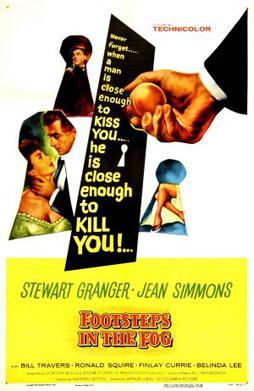
Footsteps in the Fog is a 1955 British Technicolor Victorian-era crime thriller starring Stewart Granger and Jean Simmons, with a screenplay co-written by Lenore Coffee and Dorothy Davenport, and released by Columbia Pictures. Directed by Arthur Lubin, the film is based on the W. W. Jacobs short story "The Interruption".

Francis Covers the Big Town is a 1953 American black-and-white comedy film from Universal-International, produced by Leonard Goldstein, directed by Arthur Lubin, that stars Donald O'Connor, Yvette Duguay, and Gene Lockhart. The distinctive voice of Francis is a voice-over by actor Chill Wills.

Lady Godiva of Coventry is a 1955 American Technicolor historical drama film, directed by Arthur Lubin. It starred Maureen O'Hara in the title role. Alec Harford, the English actor who portrayed Tom the Tailor, died eight months before the film's release.
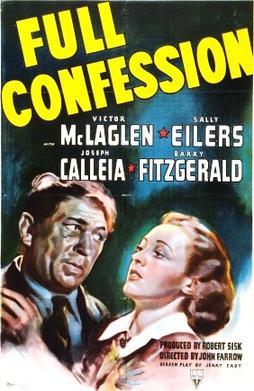
Full Confession is a 1939 United States proto film-noir, crime drama film made by RKO Radio Pictures. It was directed by John Farrow from an adaptation by Jerome Cady of Leo Birinski's story. The film stars Victor McLaglen, Sally Eilers, Barry Fitzgerald and Joseph Calleia.
A Successful Failure is a 1934 American film directed by Arthur Lubin. It was Lubin's first film as director.

Valentino is a 1951 American biographical film directed by Lewis Allen and starring Anthony Dexter and Eleanor Parker.
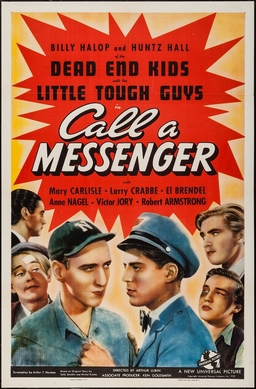
Call a Messenger is a 1939 Universal Studios film that starred Billy Halop and Huntz Hall of the Dead End Kids and several of the Little Tough Guys. It was directed by Arthur Lubin.
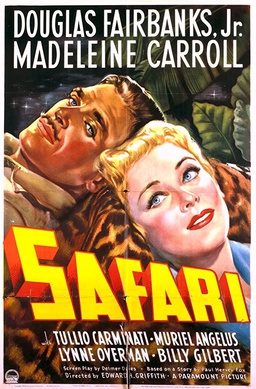
Safari is a 1940 American adventure film directed by Edward H. Griffith and starring Douglas Fairbanks Jr., Madeleine Carroll and Tullio Carminati.
Two Sinners is a 1935 film directed by Arthur Lubin.
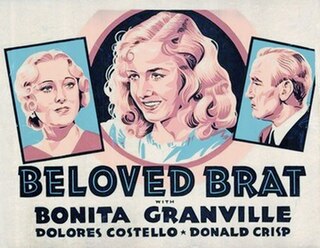
The Beloved Brat is a 1938 American comedy-drama film directed by Arthur Lubin and starring Bonita Granville, Dolores Costello, and Donald Crisp. The screenplay was written by Lawrence Kimble from an original story by Jean Negulesco.

Secrets of a Nurse is a 1938 American sports drama film directed by Arthur Lubin and starring Edmund Lowe, Helen Mack, and Dick Foran.
Risky Business is a 1939 film directed by Arthur Lubin and starring George Murphy and Dorothea Kent.

South of Pago Pago is a 1940 American South Seas adventure film directed by Alfred E. Green and starring Victor McLaglen, Jon Hall and Frances Farmer.

Rio is a 1939 American crime film directed by John Brahm and starring Basil Rathbone and Victor McLaglen. The film's title sequence doesn't credit a producer.
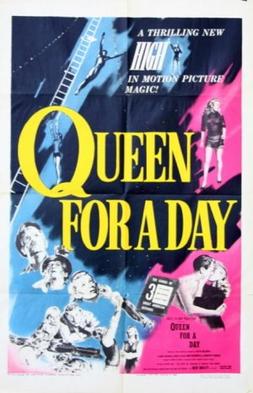
Queen for a Day is a 1951 American comedy film directed by Arthur Lubin and written by Seton I. Miller. The film stars Jack Bailey, Jim Morgan, Fort Pearson, Melanie York, Cynthia Corley, Kay Wiley and Helen Mowery. The film was released on July 7, 1951 by United Artists.















